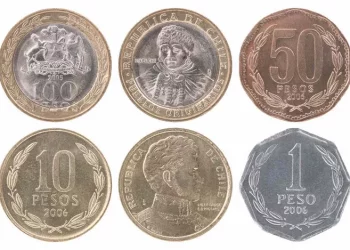In the interconnected global economy, the exchange rate between major currencies is a crucial aspect that influences international trade, investments, and financial stability. Among the prominent currency pairs, the yuan vs dollar comparison holds particular significance. This article delves into the dynamics of the yuan and dollar today, providing insights into the current exchange rate, the basics of exchange rates, their application, factors influencing their changes, and the tangible impact these fluctuations can have on individuals.
Exchange Rate Basics
Exchange rates, at their core, represent the value of one currency in terms of another. They are determined by the foreign exchange market, where currencies are bought and sold. Understanding the basics of exchange rates is essential for anyone involved in international transactions, investments, or even travel.
What is an Exchange Rate?
An exchange rate is the rate at which one currency can be exchanged for another. It is typically expressed as the amount of one currency needed to purchase one unit of another. For example, if the exchange rate between the yuan (CNY) and the dollar (USD) is 6.50, it means that 6.50 yuan can be exchanged for 1 U.S. dollar.
Types of Exchange Rates
There are various types of exchange rates, including spot rates, forward rates, and nominal and real exchange rates. Spot rates are the current rates for immediate delivery and settlement, while forward rates involve future transactions at predetermined prices. Nominal exchange rates measure the relative value of two currencies, while real exchange rates factor in inflation.
Current Exchange Rate
As of today, the exchange rate between the yuan and the dollar stands at 0.14. This figure reflects the relative strength of the two currencies in the global market and is subject to constant fluctuations influenced by economic indicators, geopolitical events, and market sentiment.
How to Use Exchange Rates?
Exchange rates serve as a vital tool for various stakeholders, including businesses, investors, and travelers. Understanding how to use exchange rates can empower individuals to make informed decisions in their respective domains.
International Trade
For businesses engaged in international trade, exchange rates impact the cost of goods and services, affecting competitiveness in foreign markets. A favorable exchange rate can make exports more attractive, while an unfavorable one may increase the cost of imports.
Investment Decisions
Investors often consider exchange rates when making decisions about foreign investments. Changes in exchange rates can influence the returns on international investments, affecting the profitability of portfolios.
Travel and Tourism
For individuals traveling internationally, exchange rates play a crucial role in determining the purchasing power of their home currency in foreign destinations. Monitoring exchange rates before travel can help budget effectively and make the most of financial resources abroad.
Factors Affecting Exchange Rate Changes
The volatility in exchange rates is influenced by a myriad of factors, ranging from economic indicators to geopolitical events. Understanding these factors can provide valuable insights into the potential direction of currency movements.
Economic Indicators
Key economic indicators, such as GDP growth, inflation rates, and employment figures, can significantly impact exchange rates. Strong economic performance tends to strengthen a currency, while economic downturns may lead to depreciation.
Interest Rates
Central banks’ decisions on interest rates can influence exchange rates. Higher interest rates in a country may attract foreign capital, leading to an appreciation of the currency.
Political Stability
Political stability is a critical factor in currency valuation. Countries with stable governments are perceived as lower risk, attracting foreign investment and bolstering their currencies.
Market Speculation
The foreign exchange market is highly influenced by speculative activities. Traders and investors can cause short-term fluctuations based on their perceptions of future currency movements.
The Actual Impact of Exchange Rate Changes on Individuals
The fluctuations in exchange rates may seem abstract, but their real impact is felt by individuals in various aspects of their lives.
Cost of Living
Exchange rate movements can affect the cost of imported goods and services, directly impacting the cost of living. A depreciating currency may lead to higher prices for imported products.
Savings and Investments
For individuals with international investments or savings in foreign currencies, exchange rate changes can influence the value of their assets. Currency depreciation can erode the real value of savings.
Employment Opportunities
Exchange rates can also impact employment opportunities, especially in export-oriented industries. A strong currency may hinder export competitiveness, potentially affecting job markets.
Inflation
Exchange rate fluctuations are closely tied to inflation rates. Sudden depreciation can contribute to imported inflation, affecting the overall price level in an economy.
Travel Expenses
For travelers, currency movements can significantly impact the affordability of overseas trips. A stronger home currency makes travel more cost-effective, while a weaker currency may increase expenses.
Conclusion
In the complex world of international finance, the yuan vs dollar comparison is a key indicator of the global economic landscape. Understanding exchange rates, their determinants, and the impact of their fluctuations is crucial for businesses, investors, and individuals alike. As the financial markets continue to evolve, staying informed about currency dynamics is essential for making sound financial decisions in an interconnected world.
Related Topics:
Understanding CNY in Forex: The Chinese Yuan’s Role in Global Currency Markets
What is Chinese Money Called:A Comprehensive Overview
The Value of 1 Yuan: Understanding China’s Currency




























